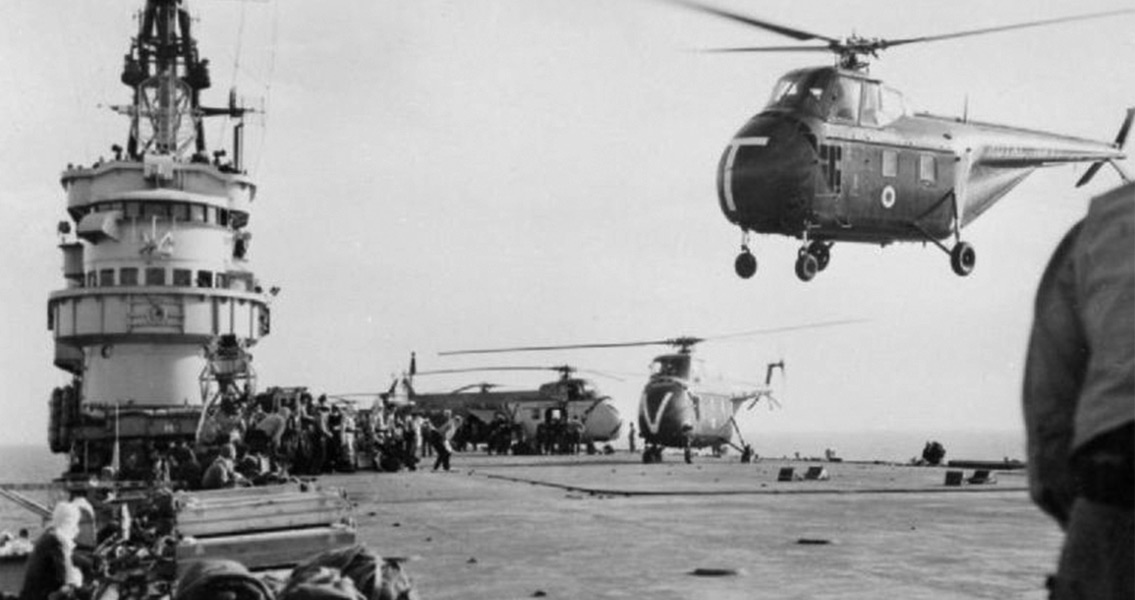<![CDATA[On 29th October 1956, Israel invaded Egypt, and the Suez Crisis began. The incident served to highlight the precarious state of play in the post war world, signifying the continued decline of the European Empires, the complex politics of the Middle East and the ever dominant role the Soviet Union and the United States were taking in international affairs. Israel's occupying forces would eventually be joined by British and French, who were deployed in the region under the pretext of protecting the canal from the combatants. Britain was suspicious of Egypt's nationalist leader General Gamal Abdel Nasser, who they believed was trying to limit their interests in the region and access to the vital trade route the canal offered. France believed that Nasser was providing aid to the rebels in its colony of Algeria, and was also dependent on the canal as a trade route. Israel viewed Nasser as a threat, particularly as there had been various border skirmishes between Israeli and Egyptian forces leading up to the invasion. They viewed attacking Egypt as a pre-emptive move to secure their own borders. All three countries had a shared interest in putting pressure on Egypt, even though the reasons were very different. As was often the case in this period of history, the conflict quickly drew in the United States and Soviet Union. Nasser had been receiving financial and military support from the USSR. The Kremlin quickly started to make ominous threats about the British and French involvement in the conflict, and made it clear that US support would lead to a confrontation. US President Eisenhower moved to diffuse the situation, warning the Soviet Union not to get involved, but also putting pressure on Britain, France and Israel to remove their troops from Egypt, which they eventually did later in 1956. European interests in the Suez Canal dated back to the nineteenth century. In 1854 the French diplomat Ferdinand De Lesseps persuaded the Viceroy of Egypt Mohamed Said to allow the construction of a canal through the strip of desert that connected Africa to Asia. Construction of the canal began in 1859, with Egypt owning 44% of shares in it. In the 1870s Egypt found itself in enormous debt, forcing the country to sell its shares in the canal. British Prime Minister Benjamin Disraeli bought Egypt's stake for #4 million, establishing Britain's long term interest in the waterway. The Anglo-Egyptian Treaty of 1936 proclaimed Egypt to be an independent state, but allowed British troops to be stationed there to protect the canal. This situation persisted throughout the Second World War, as Britain fought to liberate Egypt and the canal from German and Italian control. An upsurge of nationalism in the early 1950s however, threatened to upset the status quo. In 1951 the newly elected nationalist government revoked the treaty of 1936. Attacks on the British forces stationed at the canal soon followed. Tensions continued between Britain and Egyptian nationalists for a number of years, but it was agreed on 19th October 1954 that British troops would withdraw from Egypt by June 1956. They could only return if the canal was threatened by an outside power. The canal itself would be run by a combination of British and Egyptian engineers. On July 26th 1956 Egypt's growing nationalism culminated in Nasser announcing the nationalisation of the Anglo-French Suez Canal Company, the organisation that owned and operated the canal. Despite provisions to compensate Britain and France economically, the two countries considered this a step too far. The USA attempted to mediate a peaceful resolution to the crisis, but at the same time Britain and France were holding secret meetings with Israel. This was the key moment in the escalation of the crisis that eventually resulted in the Israeli attack. Looking back, the Suez Crisis can be viewed as a last attempt by Britain and France to exert imperial authority over the Middle East. The United States ultimately pressured them into withdrawing their troops in November 1956. From this moment it became clear that the balance of power between the Soviet Union and United States had become the key consideration in International Relations. Britain and France still had an important role to play, but the Suez Crisis seemed to question just how long the old empires had left. ]]>
The Start of the Suez Crisis
